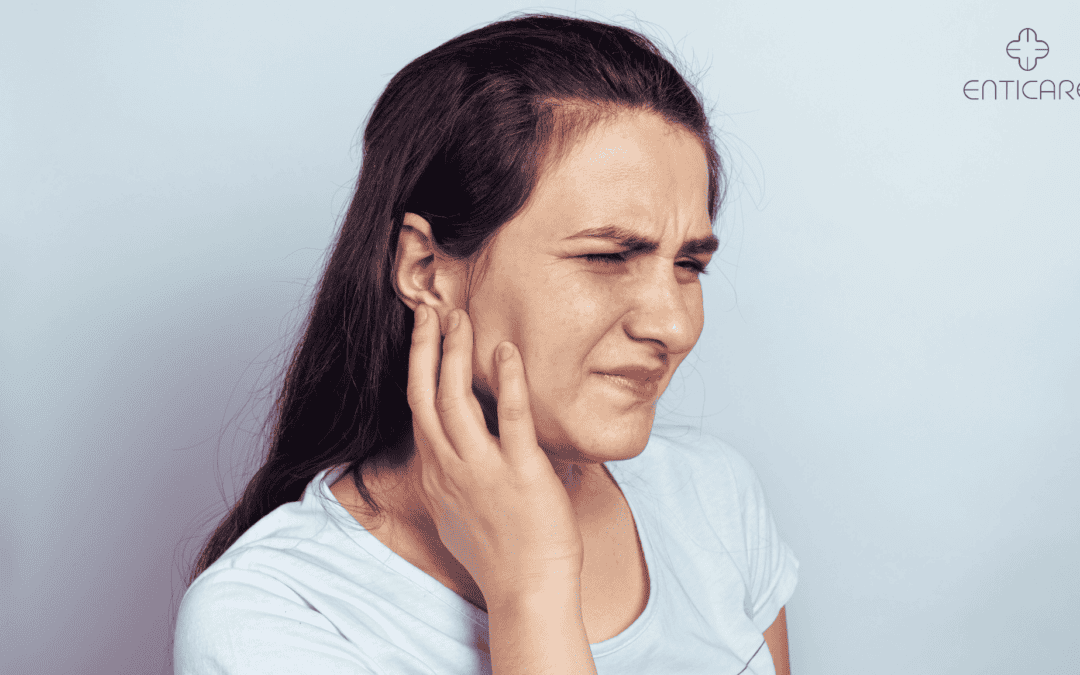Imagine trying to focus, but a constant ringing noise disrupts your peace. This condition, known as tinnitus, can feel overwhelming, especially when paired with an ear infection. Fortunately, you can regain clarity and quiet through proper understanding and care. Let’s explore what causes this frustrating condition and how you can find relief.

What Is Ringing in the Ears (Tinnitus)?
Definition of Tinnitus
Tinnitus refers to hearing noises that aren’t caused by an external source. Several common tinnitus risk factors include age-related hearing loss, exposure to loud noises, and ear infections. Many people describe it as ringing, buzzing, or whistling in the ears.
Common Types of Tinnitus
- Subjective Tinnitus: Only you can hear the sound.
- Objective Tinnitus: A rare type where a doctor can detect the sound during an exam.
Prevalence and Impact of Tinnitus
Tinnitus is a common condition that affects millions of people worldwide. According to the American Tinnitus Association, approximately 50 million Americans experience some form of tinnitus, with about 12 million seeking medical attention. The prevalence of tinnitus increases with age, with most cases occurring in people over 50. Tinnitus can have a significant impact on a person’s quality of life, causing anxiety, depression, and sleep disturbances. The constant noise can make concentrating difficult, leading to frustration and stress. Understanding the widespread nature of tinnitus can help recognize its seriousness and the importance of seeking appropriate treatment.
How Tinnitus Relates to Ear Infections
Ear infections, especially in the middle or inner ear, can trigger or worsen tinnitus. The inflammation or pressure changes affect how your ear processes sound signals.
Causes of Ringing in the Ears During Ear Infections
Middle Ear Infections (Otitis Media)
The middle ear contains small bones and air-filled spaces essential for hearing. Blockages in the ear canal due to excess ear wax can also contribute to tinnitus during middle ear infections. Infections here can block sound waves, leading to temporary tinnitus.
Inner Ear Damage
Severe ear infections can spread to the inner ear, damaging sensitive hair cells that send sound signals to the brain.
Pressure Changes in the Eustachian Tube
The eustachian tube helps equalize pressure in the ear. When an infection causes swelling or blockages, it may result in ringing or muffled hearing, and some individuals may develop tinnitus.
Risk Factors and Complications
Several risk factors can increase a person’s likelihood of developing tinnitus. These include:
- Age-related hearing loss: As we age, the hair cells in the inner ear can become damaged, leading to hearing loss and tinnitus.
- Exposure to loud noises: Prolonged exposure to noisy environments, such as concerts or construction sites, can damage the inner ear.
- Middle ear infections can cause inflammation and pressure changes, leading to tinnitus.
- Inner ear disorders: Conditions like Meniere’s disease can affect the inner ear and cause tinnitus.
- High blood pressure: Elevated blood pressure can affect blood flow to the ears, contributing to tinnitus.
- Neck injuries: Trauma to the neck can impact nerves and blood flow, leading to tinnitus.
- Certain medications: Some drugs, including antibiotics and diuretics, can have tinnitus as a side effect.
If left untreated, tinnitus can lead to complications such as:
- Chronic tinnitus: Persistent ringing that can become a constant part of daily life.
- Balance problems: Issues with the inner ear can affect balance and coordination.
- Hearing loss: Ongoing tinnitus can be a sign of underlying hearing damage.
- Sleep disturbances: The constant noise can make falling or staying asleep difficult.
- Anxiety and depression: The stress and frustration of living with tinnitus can lead to mental health issues.
Age and Weakened Immune System
As people age, their immune system weakens, making them more susceptible to ear infections and other conditions that can cause tinnitus. Age-related hearing loss is also a common cause of tinnitus, as the hair cells in the inner ear become damaged over time. Additionally, older adults may be more likely to experience tinnitus due to the cumulative effect of exposure to loud noises over the years. This combination of factors makes it crucial for older individuals to monitor their hearing health and seek medical advice if they experience tinnitus symptoms.
Exposure to Loud Noise and Hearing Loss
Prolonged exposure to loud noises can cause permanent damage to the hair cells in the inner ear, leading to hearing loss and tinnitus. This type of hearing loss is often called noise-induced hearing loss (NIHL). NIHL can be caused by exposure to loud music, machinery, or other loud sounds and can be prevented by wearing ear protection and taking regular breaks in quiet environments. Protecting your ears from loud noises is essential in preventing hearing loss and tinnitus.
Chronic Tinnitus and Balance Problems
Chronic tinnitus can cause balance problems, as the inner ear plays a crucial role in maintaining balance and equilibrium. People with chronic tinnitus may experience dizziness, vertigo, or difficulty walking, increasing their risk of falls and other accidents. Treatment for chronic tinnitus often involves sound therapy, cognitive behavioral therapy, and vestibular rehabilitation to address balance problems. These therapies can help manage symptoms and improve the quality of life for those affected by chronic tinnitus.
Symptoms to Watch For
Recognizing Tinnitus Sounds
Tinnitus can sound like ear ringing:
- High-pitched ringing
- Whirring or buzzing
- Hissing
Pain and Fullness in the Ear
Ear infections often cause discomfort, pain, or a sensation of fullness, which may accompany ringing in your ears.
Associated Dizziness and Balance Issues
Inner ear infections might lead to vertigo or balance problems due to their impact on the vestibular system.

Solutions and Treatments for Ringing Ears with Ear Infections
Medical Treatments for Ear Infections
- Antibiotics: Effective for bacterial infections.
- Decongestants: Help reduce swelling in the ear.
- Ear Drops: Soothe pain and inflammation.
Lifestyle Changes to Reduce Tinnitus Symptoms
- Avoid loud environments.
- Reduce caffeine and alcohol intake.
- Practice stress-relief techniques like yoga or meditation.
Advanced Hearing Solutions
Hearing aids with tinnitus masking features or sound therapy are standard treatments that can help minimize symptoms. Learn more about tinnitus treatments here.

When to See an ENT Specialist
Signs That Require Immediate Attention
- Persistent ringing that doesn’t improve
- Severe pain or swelling
- Sudden hearing loss
How ENT Specialists Diagnose Tinnitus and Ear Infections
Specialists use hearing tests, imaging, and physical exams to identify the root cause of tinnitus.
Benefits of Seeking Professional Help
Early diagnosis and treatment prevent long-term complications like permanent hearing loss.
Key Takeaways
- Tinnitus often accompanies ear infections due to pressure or nerve damage.
- Treatments include medication, lifestyle adjustments, and specialized therapies.
- Seek professional help if tinnitus persists or worsens.
Conclusion: Take the First Step to Relief
Don’t let ringing ears disrupt your daily life. Our specialists at Enticare can help you find relief. Schedule an appointment today to regain peace of mind and improve your hearing health.

